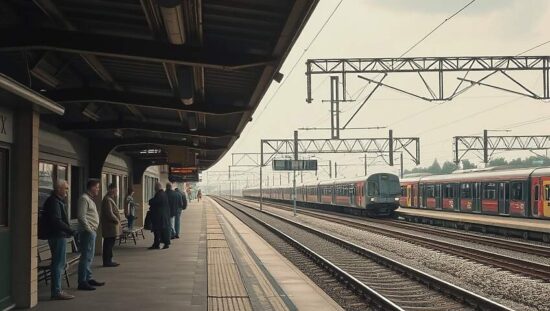Despite announcing significant job cuts across the organization, German rail giant Deutsche Bahn is reportedly planning to hire 5,200 apprentices and students in the coming year, according to sources within the railway workers’ union, EVG. The move, revealed by the “Tagesspiegel”, presents a complex contradiction within the company’s restructuring strategy, raising questions about its long-term viability and commitment to essential infrastructure.
The bulk of these new hires are intended to eventually function as train operations personnel, a critical area where Deutsche Bahn has recently struggled to maintain adequate staffing levels. Repeated failures on regional and secondary lines, often attributed to personnel shortages, have disrupted service and frustrated commuters. This ongoing instability underscores the precarious state of the nation’s rail network.
EVG union leader Martin Burkert welcomed the hiring plans, framing them as a vital, albeit belated, recognition of the deepening crisis. He stated, “The infrastructure is dilapidated and the situation at Deutsche Bahn is dramatic”. He highlighted the dedication of existing employees, emphasizing that their commitment continues to prevent a complete collapse of the system despite the mounting challenges.
Burkert’s comments implicitly critique the current management’s approach, acknowledging the strain placed on current employees who consistently find ways to mitigate disruptions. The decision to maintain apprenticeship numbers, he argues, reflects the necessity of safeguarding future talent amidst a worsening skills shortage – a crucial point given the looming threat of further service degradation. He praised Personnel Director Martin Seiler for supporting this commitment despite the internal pressure for rapid downsizing.
However, the hiring freeze stands in stark contrast to recently announced austerity measures. New CEO Evelyn Palla unveiled plans for substantial job cuts, primarily within the company’s central administration. While specific numbers have yet to be released, her predecessor, Richard Lutz, previously targeted a reduction of 30,000 positions by 2029 as part of the S3 restructuring program.
This apparent disconnect has drawn criticism, with EVG viewing the stable recruitment efforts as a victory, albeit a narrow one. “5,200 new apprentices are 5,200 future problem solvers” Burkert asserted. The union sees these new recruits as potentially crucial in stabilizing operations across trains, signal boxes, workshops and stations-a critical element in navigating what is projected to be a decade-long period of significant restructuring and necessary, but painful, modernization. The long-term efficacy of this strategy, however, remains uncertain given the broader context of organizational retrenchment and the fundamental questions surrounding Deutsche Bahn’s future operational model.





